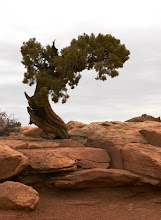E. O. Wilson: Complete the Linnaean Enterprise
 Could it be that if we possessed a more thorough knowledge of our biodiversity, we might be more inclined to protect our planet from destructive human activity? A pursuit of all biodiversity would certainly mean more engagement with the planet. Perhaps we would find a species that teaches us how to survive without killing the earth, how to cure ourselves naturally, how to use our flora. Perhaps we could engage 5% of all high school students on a Linnaean Enterprise.
Could it be that if we possessed a more thorough knowledge of our biodiversity, we might be more inclined to protect our planet from destructive human activity? A pursuit of all biodiversity would certainly mean more engagement with the planet. Perhaps we would find a species that teaches us how to survive without killing the earth, how to cure ourselves naturally, how to use our flora. Perhaps we could engage 5% of all high school students on a Linnaean Enterprise. It was in the early 1700s that Carolus Linnaeus started a system of taxonomy, the nomenclature for classifying all life forms. The Swedish botanist engaged the natural world out of a sense of wonder for nature and a deep faith in God. If God created nature, then God's wisdom could be found there.
A quarter of a millennium later, what Linnaeus began did not get finished. For we humans are careless at studying our planet's other species, but we are busy at generating our own human-oriented activity. Now, E. O. Wilson wants us to redirect our attention to the planet and its inhabitants. Wilson is calling for a completion of the Linnaean Enterprise.
Completing the Great Linnaean Enterprise
Wilson says that until recently science used "methods developed in the eighteenth and early nineteenth centuries to cover what is likely to be somewhat on the order of 10 percent of the species of organisms. Wilson believes that we "can likely do almost all of the rest of the 90 percent in the next 25 years." What do you think?
Should we contact Wilson and suggest some ideas? Should we start our own amateur taxonomy society?


1 Comments:
Wilson has it right when he says that we basically stopped being interested in the idea that we could identify all living organisms on earth many years ago. Of course the exercise became much more complicated with the discovery of the New World. When one tree in the Amazon basin contained as many different species of beetles as found in all of Europe, the enthusiasm of Linnaean inspired biologists (many of them were monks in those days) began to wane. It's interesting to note that much of the early interest in learning everything we could about the species that existed used to be seated in Church-related activities. Today, with much more Church-related activism in many areas (too many to remain relevant, if you ask me), it might be in Wilson's and the Church's interst to re-enthuse the Church's link to Gods creation. Who knows, by learning much more about the species that inhabit the earth, maybe the window into the mind of God so sought after by the early monks might just be cracked open. Are there messages about human sustainability, written in God’s own “hand writing”, hidden in the organization of species that make up the fabric of ecosystems? If we bulldoze too many more ecosystems into oblivion, we may never know! It’s probably in the interest of all humans, God-fearing or not, to learn about the species that exist now and see if we can learn a thing or two about sustainability that could be applied to human society. This may give our descendents a better chance at survival.
Post a Comment
<< Home